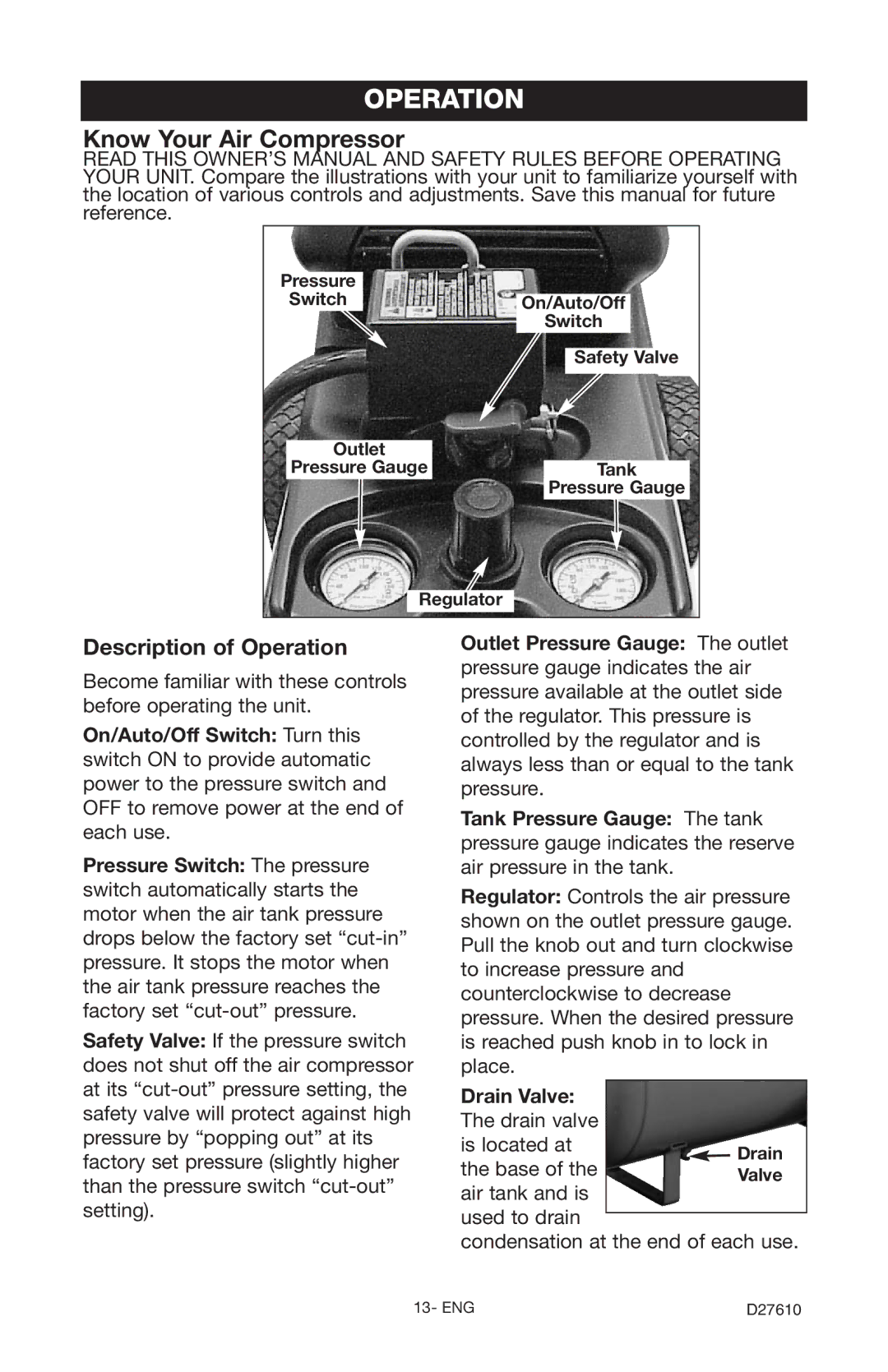
OPERATION
Know Your Air Compressor
READ THIS OWNER’S MANUAL AND SAFETY RULES BEFORE OPERATING YOUR UNIT. Compare the illustrations with your unit to familiarize yourself with the location of various controls and adjustments. Save this manual for future reference.
Pressure
SwitchOn/Auto/Off
Switch
Safety Valve
Outlet
Pressure GaugeTank
Pressure Gauge
Regulator
Description of Operation
Become familiar with these controls before operating the unit.
On/Auto/Off Switch: Turn this switch ON to provide automatic power to the pressure switch and OFF to remove power at the end of each use.
Pressure Switch: The pressure switch automatically starts the motor when the air tank pressure drops below the factory set
Safety Valve: If the pressure switch
Outlet Pressure Gauge: The outlet
pressure gauge indicates the air pressure available at the outlet side of the regulator. This pressure is controlled by the regulator and is always less than or equal to the tank pressure.
Tank Pressure Gauge: The tank
pressure gauge indicates the reserve air pressure in the tank.
Regulator: Controls the air pressure shown on the outlet pressure gauge. Pull the knob out and turn clockwise to increase pressure and counterclockwise to decrease pressure. When the desired pressure is reached push knob in to lock in
does not shut off the air compressor at its
place.
Drain Valve:
The drain valve is located at the base of the air tank and is used to drain
![]() Drain Valve
Drain Valve
condensation at the end of each use.
13- ENG | D27610 |
